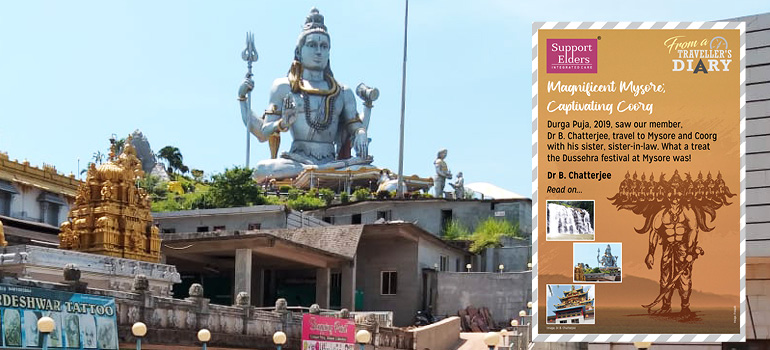Durga Puja, 2019, saw our member, Dr B. Chatterjee, travel to Mysore and Coorg with her sister, sister-in-law. What a treat the Dussehra festival at Mysore was!
We took the afternoon flight to Bangalore and stayed overnight at a hotel there. As we had seen Bangalore and visited the places of interest before, we gave it a skip and drove straight to Mysore. We had seen Mysore too but the palace fascinated us as we went for a revisit.
The Dussehra festival at Mysore is a grand occasion. The king leads the procession on a gold chariot and people throng on both sides to cheer and greet him. After that the chariot is kept in the palace amidst tight security for public viewing for a few days. We also went to the famous Vrindavan Garden, known for its musical fountain.
From Mysore we went to Coorg, a sleepy hilly township, famous for its Buddhist monastery. We had a unique experience at the monastery. Exactly at one o’clock a religious sermon is held and just before that hundreds of monks of different ages and heights congregate systematically and quietly from all corners of the monastery. It was really a wonderful sight!
There is also a glorious and gigantic waterfall at Coorg; Abbey Fall by name. It is a must-see attraction. Beware though, to reach the falls one has to climb a long flight of steps followed by quite a long walk! One can hear the gushing sound of the waterfall along the way.
From Coorg we went to Murudeswar, famous for its Siva temple on the sea. A huge statue of Lord Siva outside the temple can be seen from afar.
It was a truly memorable trip and we enjoyed it to the hilt.

